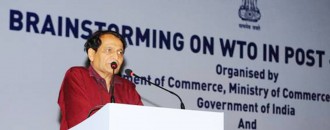
India’s electric cars plans to boost SoftBank solar goals
The Dollar Business Bureau
Japanese telecom giant SoftBank Group is in discussions with the Government of India for facilitating the use of solar energy for charging electric vehicles in India, a senior executive at the company’s local unit told a leading news agency.
The Indian government is planning to electrify all the vehicles in the coming 15 years, a step that can boost solar ambitions of SoftBank in India if the country adopts renewable energy for charging vehicles.
SoftBank has said that it will invest around $20 billion along with Bharti Enterprises and Foxconn Technology in solar projects in the country. The company estimates the electrification process could generate a requirement of more than 150 gigawatt of extra energy.
India has set an ambitious target to create 100 GW of solar energy by 2022. While the US President Donald Trump is withdrawing his country out of the Paris climate accord, India is firm to its commitments on renewable energy.
The Japanese multinational is also one of the largest investors in cab aggregator Ola, which is planning to roll out electric vehicles on a large-scale by next year and has launched its trial project in May to test their viability.
In a strategic move, Niti Aayog - the most influential government think-tank of India, chaired by Prime Minister Narendra Modi, revealed a blueprint of the policy in May with the aim to electrify all vehicles by 2032.
Designed to help in cutting down emissions and oil import bill of India, the blueprint suggested lower tax rates and interest on loan for electric fleet of ride-hailing companies like Ola while putting a limit on sales of diesel and petrol models.
In 2015, India had launched a scheme in which the government offered incentives on cars run on clean fuel technology in order to boost the sales of the vehicles to around 7 million by 2020.
However, in spite of incentives as much as Rs.140,000 on some vehicles, the scheme has not made an impact, with electric and hybrid vehicles making up just a fraction in the sales of 3 million passenger vehicles in the country in 2016.
According to auto manufacturers, sales of electric vehicles in the country have been negligible primarily due to the high cost of battery and lack of infrastructure for charging the vehicles, which is making electrification unviable.






 to success.
to success.